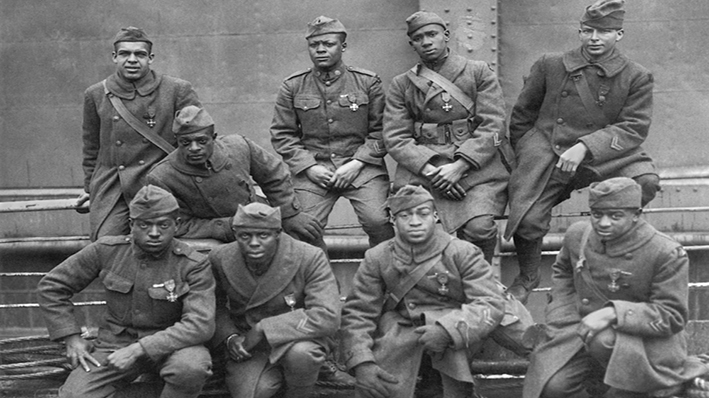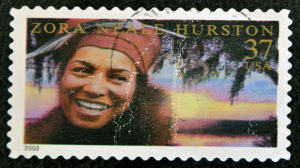
EverettCollection/Shutterstock.com
Students of the world, do you remember you were taught in high school? What they taught you (or tried to) teach you in high school?
When flipping through those lengthy history textbook pages, did you ever notice something wrong? Do you remember the list of authors and books from the reading list on the syllabus?
How many of the novels your teacher made you read were written by people who weren’t white, whose histories you were asked to memorize? How were they taught?
BLEACHED TEXT
Our current education system is broken. One of the biggest flaws in its structure is the constant misrepresentation of minorities in school curriculums. Under the veil of patriotism, we fail to see the violent consequences of the whitewashed dominant narrative which has embedded itself within our scholarly content and curricula. I propose we discard those textbooks and create new ones.
The injustice which stems from the unfaithful representation of minorities in high school curriculums transcends borders. Whether it be countries with a history of colonialism, slavery, ethnic tension, genocide, colorism, color-blindness, all school systems need reform. Textbooks define what is deemed important in a nation’s history and national memory.
Why then, do American textbooks depict Native American culture vaguely, primitively, superstitiously, or scientifically? Why do American textbooks contain negative stereotypes of Islam? Why do American textbooks remain silent on the emotional atrocities Japanese families underwent in their forced relocation to concentration camps? Why do American geography textbooks illustrate “third world countries” as poor hopeless countries and our country as powerful and prosperous?
Colonialism is depicted as a glorified “us” vs “them”. Countless more examples of these absurd misrepresentations exist, especially in the way American history textbooks portray the “winners” and “losers” of war or colonialism and its impact on other nations. When these important stories aren’t distorted or omitted, they are used as political weapons.
MYOPIC DELUSIONS
As much as the concept of institutionalized racism is labeled as merely an American problem, France’s textbooks are guilty of the same treason. The French curriculum may pretend to be colorblind, to be neutral, but it lacks truth. The national curriculum and pride in “one united France” betray those France colonized and oppressed. Why ignore the deep suffering and trauma inflicted by French colonialism and brutal oppression of North and Sub-Saharan African peoples?
When reading the pages of textbooks, literary works, I implore French students to look for the political rhetoric, the ideological rhetoric which continues to uphold colonialist or monocultural white agendas. In French Science textbooks, those anatomic diagrams are of white bodies. In the Histoire-Géo textbooks, immigrants are either portrayed as suffering, refusing to assimilate, or stripped of their origins. In the Geo textbook, I saw the chapters on Africa and the Maghreb region showing images of poverty: children in the streets, traditional farmers, but these chapters never show the more modern and dynamic nature and rich culture of these countries. In all the novels French students read, to be Black is to be a slave.

neftali/Shutterstock.com
And when I accuse France of these stereotypical depictions, the French plead colorblindness, and resort to using “exotic” names as a proxy for ethnicity in the Math problems of arithmetic textbooks in order to illustrate and uphold oriental depictions.
To be colorblind is to be racist: a privileged excuse to look away from painful suffering but also to gloss over cultural, racial, and ethnic diversity. The rhetoric of assimilation in French high schools is evidence of the forced renunciation of culture, history, and identity.
How can these bodies of color heal physically and emotionally from the trauma inflicted on their ancestors if their own schools force them into stereotypes or force them into erased identities, erased communities? If their own government pretends not to see them and segregates them into broken and abandoned neighborhoods. If ethnic minorities are treated by their own nation as strangers?
STIGMAS PAST
Being French American myself, I see the evil in both nations. I see the evil in my institutions. So, let us not lie to ourselves and say that France is different; that its institutions are not plagued by racism like they are in the US. Let’s open our eyes, open our textbooks, and see color: the migrant, the ethnic minority, the colonized, are still being oppressed in those images, in those chapters, just as the Black and Brown bodies are in American textbooks. See past the political rhetoric and recognize the complacency of our own country’s narrative in the persecution, colonization, and oppression of others.
RAINBOW RISING
Representations of Blackness in America and in France have been shaped by an oppressive colonialist agenda since the beginning of times and still to this day. These countries cannot continue to overlook their past in ignorance, distribute lies to be read in classrooms, omit the truth of their history, and feed these untruthful stories to students. Using curriculums as a weapon to enter the consciousness of the youth, break their trust, spread the myth of the “other”, and strike down the self-esteem and identity of Black and Brown people of the world needs to be recognized and ceased.
It is unacceptable in a world where Breonna Taylor was murdered for being Black by American police or Adama Traore was murdered for being Black by French police. Racism is institutionalized in France, in the US, and throughout most of the world. But this doesn’t mean it’s above us, far from us, or we can’t see it. It is right in front of our eyes, in the Eurocentric pages of our textbooks.
Maybe next time your teacher asks you to read some Shakespeare, propose some bell hooks, some Angela Davis, or some Audre Lorde instead. And pour les Français, quand votre prof vous demande de lire du Molière, proposez plutôt du Léopold Sédar Senghor, Aminata Sow Fall, Mongo Beti, Ngugi Thiong’o, Frantz Fanon, ou Valentin-Yves Mudimbe.
*Ethnic suburbs.
About the Article
A look at the ongoing lack of true color blindness in U.S. and French education.



